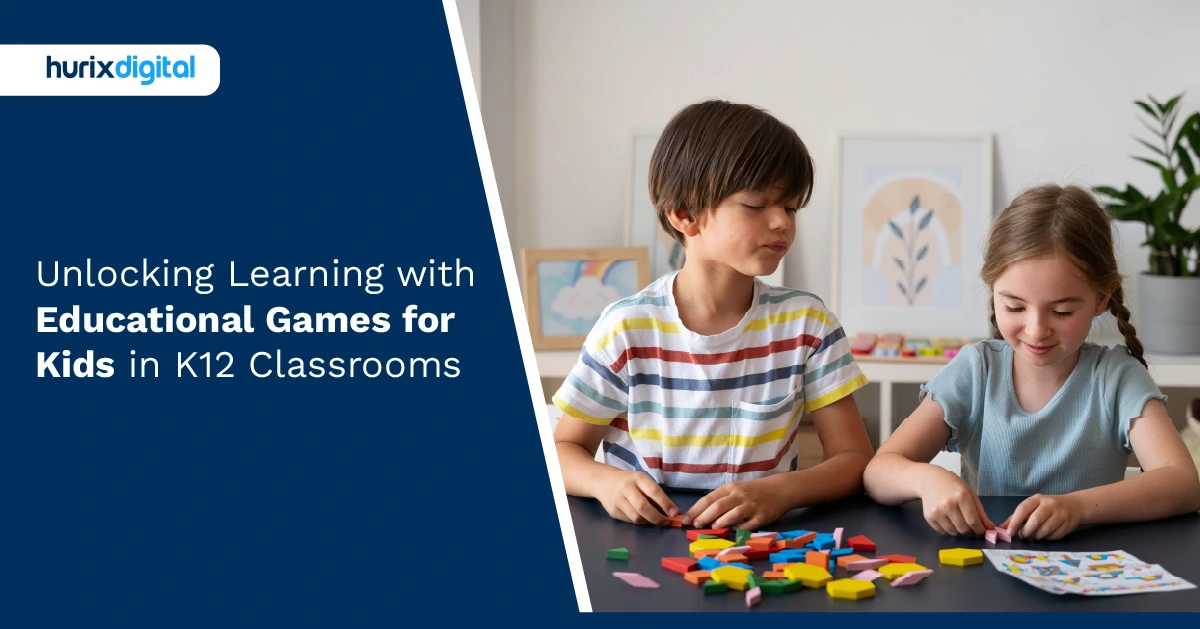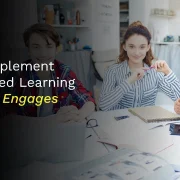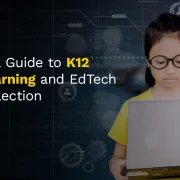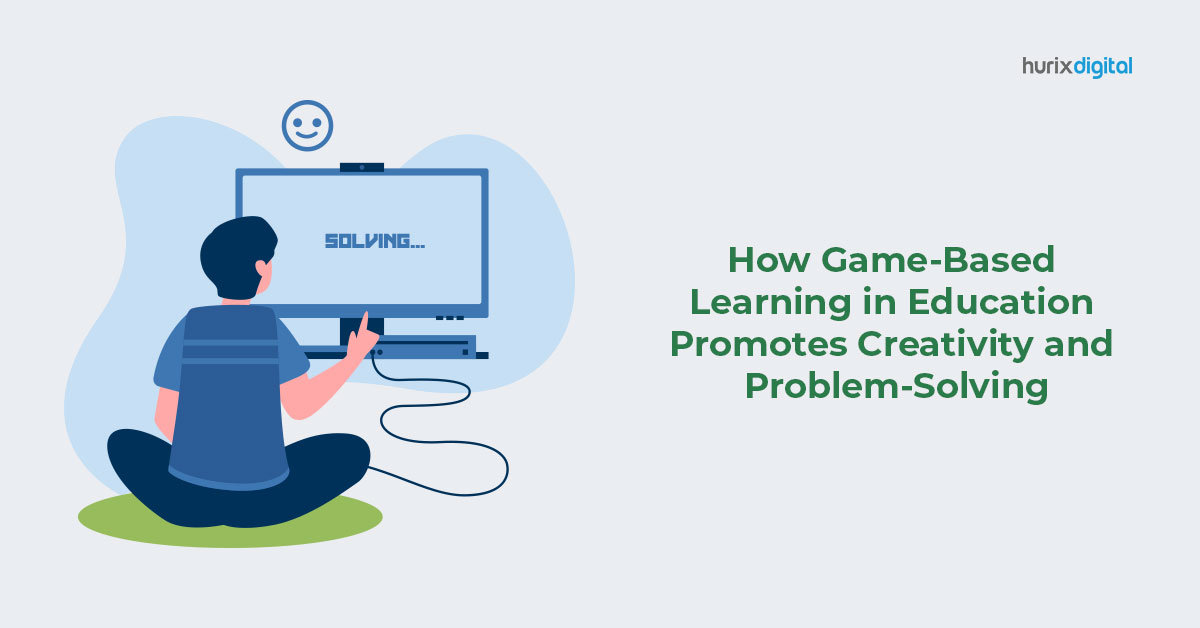
How Game-Based Learning in Education Promotes Creativity and Problem-Solving
Summary
Explore how game-based learning fosters creativity and problem-solving skills in students, offering practical examples and strategies for educators.
One of the leading reasons that educators champion game-based learning in education is because it promotes the creativity and critical thinking skills necessary for problem-solving. Problem-solving and creativity in facilitating learning are invaluable for both academic success and life beyond the classroom. But just how does game-based learning in education help students develop critical thinking skills? Read on to learn more.
Table of Contents:
- Game-Based Learning Solutions Promote Cognitive Flexibility
- Benefits of Incorporating Educational Games: Boosting Creativity
- Creative Problem-Solving Examples for Students
- Game-Based e-Learning: How Does it Enhance Critical Thinking Skills?
- Integrating Game-Based Learning Solutions Can Help Maximize the Learning Potential
Game-Based Learning Solutions Promote Cognitive Flexibility
When students are having fun, research shows that the brain becomes more flexible thanks to the release of specific neurons. Moreover, when students are involved in experiential learning, as offered by game-based e-learning, the brain also becomes more flexible.
Known as cognitive flexibility, this relaxed, open state allows students to consider solutions, strategies, and answers to problems they may not consider when learning through a less enjoyable method. To that end, it is fair to say that problem-solving and creativity in facilitating learning through game-based learning education offer significant benefits to both students and educators.
Irrespective of the subject matter students are actively engaging with, game-based learning in education helps bolster critical thinking skills, innovation, and problem-solving, specifically because they are enjoying themselves.
Moreover, game-based learning in education offers a dynamic and collaborative approach to learning, by integrating entertainment with educational content. While game-based learning in education may cover a wide range of subjects, one notable benefit they provide is the promotion of creativity and problem-solving skills among students. By fostering critical thinking, innovation, and the ability to overcome challenges, educational games create an environment where students can develop these important skills independently or as part of a team while having fun.
Benefits of Incorporating Educational Games: Boosting Creativity
Educational games for students online have unique advantages that contribute to the development of creativity and problem-solving skills in students. Firstly, game-based learning in education offers a safe and engaging space for students to explore, evaluate, examine, and experiment with ideas without the fear of failure.
Game-based learning encourages students to think critically and find innovative solutions to challenges presented within the game. The interactive nature of games also helps students develop problem-solving strategies by allowing them to make decisions, face consequences, and adapt their approaches based on the outcomes.
Creative Problem-Solving Examples for Students
Consider that game-based e-learning often involves open-ended scenarios that promote creativity and imagination. Games in subjects such as Science and History often present students with complex problems that require thinking outside the box and encourage them to explore different possibilities and perspectives.
Some educational games for students online encourage players to find unconventional solutions to challenges. Other game-based learning solutions provide open-ended gameplay or puzzles that require creative thinking to overcome. By exercising creativity and exploring alternative approaches in games, players can develop robust problem-solving skills.
Creative problem-solving examples for students may include things like:
- What Happens When You Play a History Game from Different Historical Perspectives?
- What Are the Moral Dilemmas To Consider When Choosing Option A versus Option B?
- How Do You Get From Point A to Point B With As Little Risk As Possible?
- How Many People Will Benefit if You Choose Option A?
- How Will the Environment Be Affected By the Choice You Make?
- Are There Better Ways to Accomplish a Goal?
- What Choice is Safest?
- What Choice is Riskiest?
There are endless other creative problem-solving examples that will force students to use critical thinking skills to advance in the game, or conversely to fail, and to learn from it.
Game-Based e-Learning: How Does it Enhance Critical Thinking Skills?
Critical thinking often involves creative solutions, but in other cases, it involves skills such as strategic planning, trial-and-error learning, teamwork and collaboration, time management and prioritization, and adaptability and flexibility.
It’s important to note that the critical thinking skills that video games help develop will vary from game to game and will depend in large part on each student’s engagement with the game.
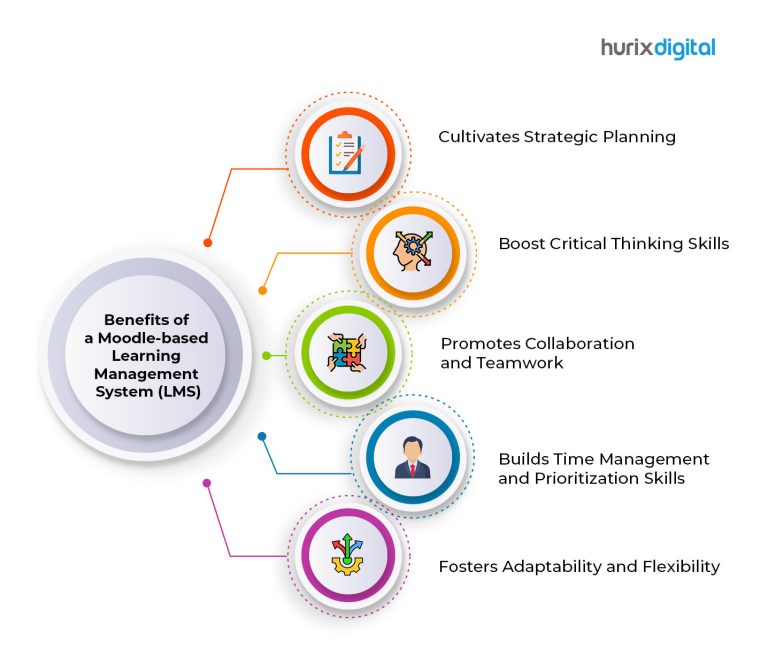
Game Based-Learning in Education Can Cultivate Strategic Planning
Strategy games, such as real-time strategy or turn-based strategy games, force players to think strategically to devise long-term plans. These educational games for students online often involve resource management, tactical positioning, and predicting opponents’ moves. By playing strategy games, students can cultivate better problem-solving and critical thinking skills that can translate to real-life scenarios.
Trial and Error Learning Can Boost Critical Thinking Skills
High-quality game-based learning solutions often involve iterative problem-solving processes. Players attempt different strategies, learn from their mistakes, and adjust their approach accordingly. Through trial-and-error learning, often discovered thanks to game-based assessments K12 students can develop and hone skills including adaptability, persistence, and critical analysis to learn more deeply and improve their academic performance.
Game-Based E-Learning Can Promote Collaboration and Teamwork
Many educational games for students online allow for multiplayer options. This fosters an environment of teamwork as students come together to solve problems and achieve the objectives of the game. Through collaboration with others, students often benefit from enhanced problem-solving skills, communication skills, and an aptitude for balancing diverse perspectives. Other students are likely to develop leadership skills, including delegation.
Game-Based Learning in Education Can Build Time Management and Prioritization Skills
Educational video games that use simulation and resource management play styles challenge students to balance multiple tasks simultaneously and make decisions within limited timeframes. These types of educational video games help students build time management skills, become more adept at prioritization, and develop an ability to handle pressure while solving problems efficiently.
Also Read: Top 8 Benefits of Educational Games in K12 Learning
Educational Games for Students Online Foster Adaptability and Flexibility
In today’s technologically advanced world, students must be flexible and adaptable to thrive. After all, the devices we use, and the software we rely on, are changing constantly. Educational video games do an excellent job of presenting K12 students with dynamic and evolving environments. Games often require students to respond to unexpected situations, adjust their strategies, and remain nimble in decision-making.
Integrating Game-Based Learning Solutions Can Help Maximize the Learning Potential
Problem-solving and creativity in facilitating learning are the goals of many educational video games. But how can educators best maximize the learning potential of game-based learning in education? These strategies can help.
Integrate Game-Based Learning Solutions with Curriculum:
Integrating educational games into your curriculum will reinforce concepts taught in the classroom. Incorporating game activities with classroom instruction, manual problem solving, and textbook assignments to bolster understanding and engagement.
Use Game-Based Learning in Education to Promote Collaboration:
Game-based learning in education should be used to promote collaboration. This can be achieved by dividing classrooms into teams for competition. This can deepen learning potential by requiring teamwork, clear communication, and critical thinking skills to outmaneuver the competition.
Reflect and Discuss Using Game-Based Assessments
After gameplay sessions, educators should challenge students to reflect on and discuss the results of game-based assessments. By continuing to discuss what students experienced, knowledge acquired is reinforced, bolstering learning potential.
Conclusion
In conclusion, game-based learning solutions provide a dynamic platform to nurture creativity and critical thinking skills among K12 students. By immersing students in engaging and interactive educational games, these solutions foster an environment where learning becomes fun and captivating. Through Game Learning’s partnership with Hurix Digital, Game Learning brings these transformative experiences to students worldwide. Embrace the power of game-based learning to unlock the full potential of K12 students, empowering them with the skills necessary to thrive in an ever-evolving world.
To learn more about game-based learning solutions from Hurix that bolster creativity and critical thinking skills, contact us today.
Frequently Asked Questions (FAQs)
1. Can game-based learning help students develop innovative thinking?
A. Yes, game-based learning encourages students to think outside the box, consider multiple perspectives, and find novel solutions, fostering their ability to generate innovative ideas.
2. How does game-based learning encourage students to take risks?
A. Games often reward exploration and experimentation, encouraging students to take risks, test hypotheses, and embrace uncertainty to discover new strategies or solutions.
3. Can game-based learning be used to address real-world problems?
A. Yes, some educational games simulate real-world scenarios, allowing students to apply their problem-solving skills to authentic challenges and develop a connection between virtual and real-world problem-solving.
4. Can game-based learning support cross-disciplinary problem-solving skills?
A. Yes, game-based learning can integrate various subjects and disciplines, requiring students to apply knowledge and problem-solving skills from multiple domains to solve complex challenges.
5. Can game-based learning cultivate perseverance and resilience in students?
A. Yes, games often present students with challenging obstacles, setbacks, and incremental progress, fostering perseverance, determination, and resilience in problem-solving.

Senior Vice President
A Business Development professional with >20 years of experience with strong capability to sell new solutions and develop new markets from scratch. New Market Entry Specialist with experience working in the largest emerging markets. Exceptional experience in conceptualizing, ideating and selling new learning technologies like VR AR, etc. across multiple industry verticals.




